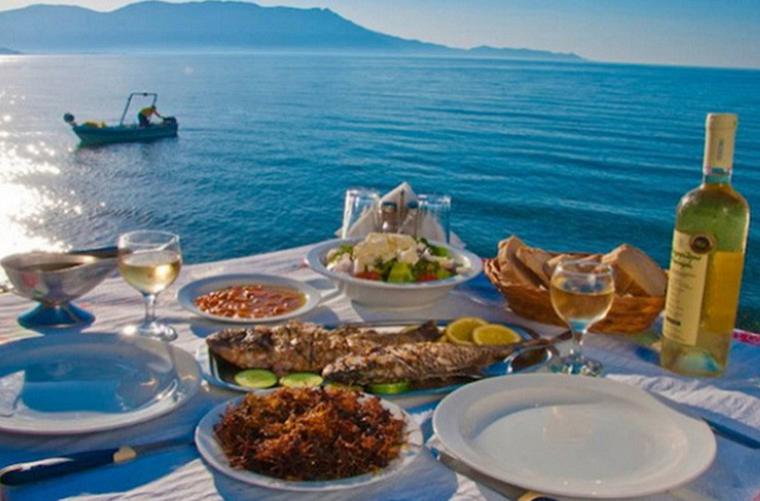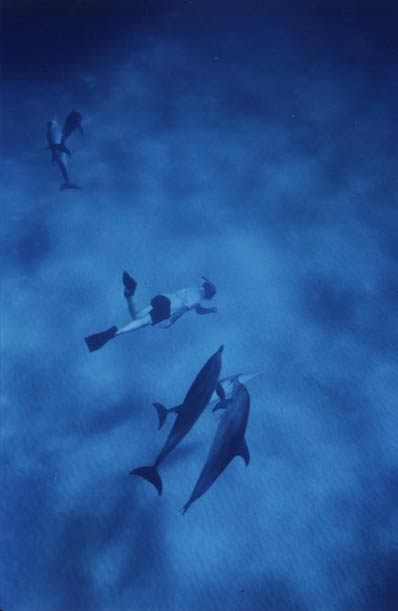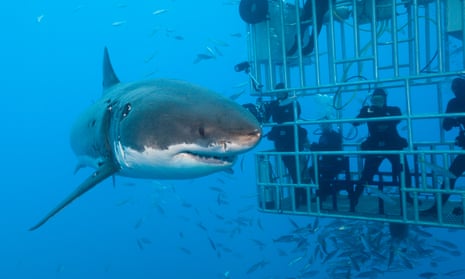Beyond the Beach: Ethical Sea Adventures for the Conscious Traveler

The allure of the sea is undeniable. The vast expanse of blue, the rhythmic crash of waves, the sheer abundance of life beneath the surface – it’s a siren song that has captivated humanity for millennia. But as travelers, we have a responsibility to ensure our adventures don’t come at the expense of the very environment we seek to enjoy. Forget the overcrowded beaches and environmentally damaging mega-cruises. It's time to explore the oceans with intention and respect. This is where ethical sea adventures come in.
This blog post is dedicated to the conscious traveler seeking unique and sustainable ways to experience the magic of the ocean. We'll dive deep (pun intended!) into three incredible adventures that prioritize conservation, support local communities, and offer unforgettable experiences without harming the marine world.
1. A Culinary Cruise Through the Greek Islands: Savoring Sustainability
Imagine yourself aboard a 50-passenger catamaran, white sails billowing against the backdrop of the Aegean Sea. This isn’t your typical cruise. Forget the buffet lines and crowded ports. This is an intimate journey through the Greek Islands, a culinary odyssey designed to tantalize your taste buds while minimizing your environmental footprint.
Local Flavors, Sustainable Practices:
Instead of relying on mass-produced ingredients, this culinary cruise is committed to sourcing everything locally. Picture private cooking classes on board led by passionate chefs from Santorini, sharing their family recipes passed down through generations. Envision yourself visiting family-owned vineyards in Crete, sampling crisp Assyrtiko wines with panoramic views of the rolling hills. And picture exploring traditional olive groves in Corfu, learning about the ancient art of olive oil production.
A Taste of Authentic Greece:
Prepare your palate for an explosion of flavors. Fresh grilled octopus with lemon and oregano, a staple of Greek cuisine, will be a frequent delight. Indulge in moussaka prepared with locally sourced eggplant, potatoes, and a creamy béchamel sauce. Every meal is a celebration of Greek culinary heritage, a testament to the land and sea.
The Ethical Difference:
This isn't just about delicious food; it's about responsible tourism. The cruise operator actively supports small businesses, partnering with local farmers, fishermen, and artisans. This provides a vital economic boost to the communities you visit, helping to preserve their traditions and livelihoods. Waste is minimized through careful planning, composting, and a strict no-single-use plastic policy.
Offsetting Your Impact:
To further minimize your environmental impact, the cruise offers options to offset your carbon emissions through verified carbon offsetting programs. These programs invest in renewable energy projects and forest conservation initiatives, helping to mitigate the effects of travel.
Contrast: Compare this experience to the typical image of a large cruise ship: thousands of passengers, mountains of waste, and a limited connection to the local culture. This culinary cruise offers a far more enriching and sustainable way to explore the Greek Islands, fostering a deeper appreciation for the region and its people.
2. Dolphin Research Expeditions in Bimini, Bahamas: Science and Conservation in Action
Step away from the swim-with-dolphins programs and immerse yourself in the world of dolphin research. In Bimini, Bahamas, you can join a reputable marine biology organization on a research expedition dedicated to understanding and protecting these intelligent creatures.
Beyond Playful Encounters:
This isn't about staged interactions; it's about contributing to genuine scientific research. As a participant, you'll work alongside researchers, using hydrophones to record dolphin vocalizations, observing their behavior in their natural habitat, and collecting data on dolphin populations.
Data Collection and Conservation:

You'll learn about research methodologies such as photo-identification, where researchers use unique markings on dolphins' dorsal fins to track individuals over time. You'll also participate in acoustic monitoring, analyzing dolphin calls to understand their communication patterns. This data is crucial for understanding dolphin behavior, population dynamics, and the threats they face. The information gathered is then used to develop effective conservation strategies.
The Importance of Responsible Tourism:
It's important to recognize the negative impacts of swim-with-dolphins programs. These programs often involve keeping dolphins in captivity, subjecting them to stress and unnatural conditions. Responsible dolphin tourism, on the other hand, focuses on observing dolphins in their natural habitat without interfering with their behavior.
Educational Empowerment:
This expedition is a unique learning opportunity. You'll gain valuable insights into dolphin biology, behavior, and the challenges they face in a changing ocean. The organization’s research findings are often published in peer-reviewed scientific journals, further emphasizing the expedition's credibility and contribution to the scientific community.
Addressing Ocean Plastic:
Acknowledging the harsh reality of ocean pollution, the expedition actively incorporates solutions for waste reduction. Participants are educated about the impact of plastic on marine life and encouraged to minimize their plastic consumption. Beach cleanups are often organized to remove plastic debris from the marine environment.
3. Cage Diving with Great Whites in Gansbaai, South Africa: Conservation Through Understanding
Cage diving with Great White sharks often evokes images of fear and sensationalism. But in Gansbaai, South Africa, this activity can be a powerful tool for conservation and education.
Challenging Misconceptions:
It’s crucial to understand that Great White sharks are not mindless predators. They are intelligent, complex creatures that play a vital role in maintaining the health of the marine ecosystem. By removing sick and weak animals, they help to regulate populations and prevent the spread of disease.
An Opportunity for Observation:
Cage diving provides a unique opportunity to observe these magnificent creatures up close, fostering appreciation and understanding. Witnessing their grace and power firsthand can shatter misconceptions and inspire a desire to protect them.
Ecotourism and Conservation Funding:
Ecotourism in Gansbaai generates revenue that directly supports shark research, anti-poaching patrols, and community education programs. This funding is essential for protecting sharks and their habitat.
Local Economic Benefits:
Shark tourism provides significant economic benefits to the local community, supporting local businesses and creating jobs. This provides an incentive for communities to protect sharks, recognizing their value as a sustainable resource.
Sustainable Practices in Action:

Responsible cage diving operators adhere to strict codes of conduct to minimize disturbance to the sharks. This includes minimizing bait usage and avoiding any behavior that could alter their natural behavior. Many operators are actively involved in shark research and conservation initiatives, such as tagging and monitoring programs.
Combating Shark Finning:
Shark finning, the practice of removing a shark's fins and discarding the body, is a major threat to shark populations worldwide. Responsible tourism can help combat this threat by raising awareness and providing an alternative source of income for local communities. Tourists can be educated to never buy or use products that contain shark.
Choosing Responsible Sea Adventures
The ocean is a precious resource that deserves our respect and protection. By choosing ethical and sustainable sea adventures, you can make a positive impact on marine ecosystems and local communities. Before booking any sea adventure, research the operator's environmental and social practices. Look for companies that are committed to conservation, support local communities, and minimize their environmental footprint. Visit VistaLocation.com today to find and book your next Ethical Sea Adventure.
Let's travel with intention and help protect the wonders of the sea for generations to come.